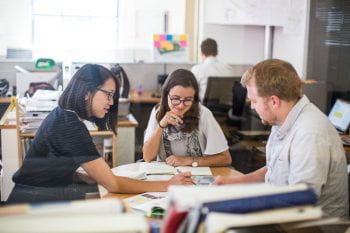
What is philanthropy? Why do people give? How do we know we are making a difference with our funding?
These are just a few of the questions students will consider in Philanthropy Lab, a new sociology course offered this fall in partnership with the Gephardt Institute. Philanthropy Lab aims to give students a theoretical and practical understanding of philanthropy today. Students will learn about the sociological and historical roots of philanthropy and its role in addressing social issues. They will also explore best practices in philanthropy and apply their learning to research, solicit funding proposals, and select a nonprofit or group of nonprofits to fund. Through a grant from The Philanthropy Lab, the class will have $40,000 to allocate in this pilot year to one or more St. Louis organizations.
At its core, Philanthropy Lab is an experiential, community engaged course. Elizabeth George, Director of Community Investment at the St. Louis Community Foundation, will instruct the course using real world experience, which serves as a creative teaching model (Kolb & Kolb, 2018). She explained that this model allows students to experience, reflect, think, and act within each class period, between sessions, and across the course leading to the capstone of making real grants to community organizations.
Cassie Power, Associate Director for Faculty and Academic Engagement at the Gephardt Institute, says part of what makes this type of course effective “is that when you work on real issues with real people and to real effect, the learning becomes less about your grade and more about what you are doing. It’s not just about you as a student; you want to do right by the community members you are working with.”
Philanthropy Lab will serve as an important pathway for students to learn about civic engagement. Elizabeth Waggoner, Class of 2020, is part of the first cohort and is eager to build a better understanding of what makes philanthropy effective, as well as its ethical implications. “I think philanthropy is reliant on civic engagement,” she shared. “If you aren’t engaged with your community and the organizations you give to, your philanthropy will not be nearly as impactful.” Elizabeth and other course participants will have the opportunity to become informed givers within the nonprofit landscape in St. Louis. Power is also eager for students to develop personal goals as givers who can provide lasting benefit to the communities they call home after graduation.
This innovative course is part of a national model. Started in 2011, The Philanthropy Lab and its donor partners have given over $8.4 million to build philanthropy education at 27 universities across the United States. After the pilot year, the Gephardt Institute will work with The Philanthropy Lab to shift to a self-sustaining fundraising model and offer the course on an annual basis.
To learn more about Community Engaged Courses and teaching resources, click here.